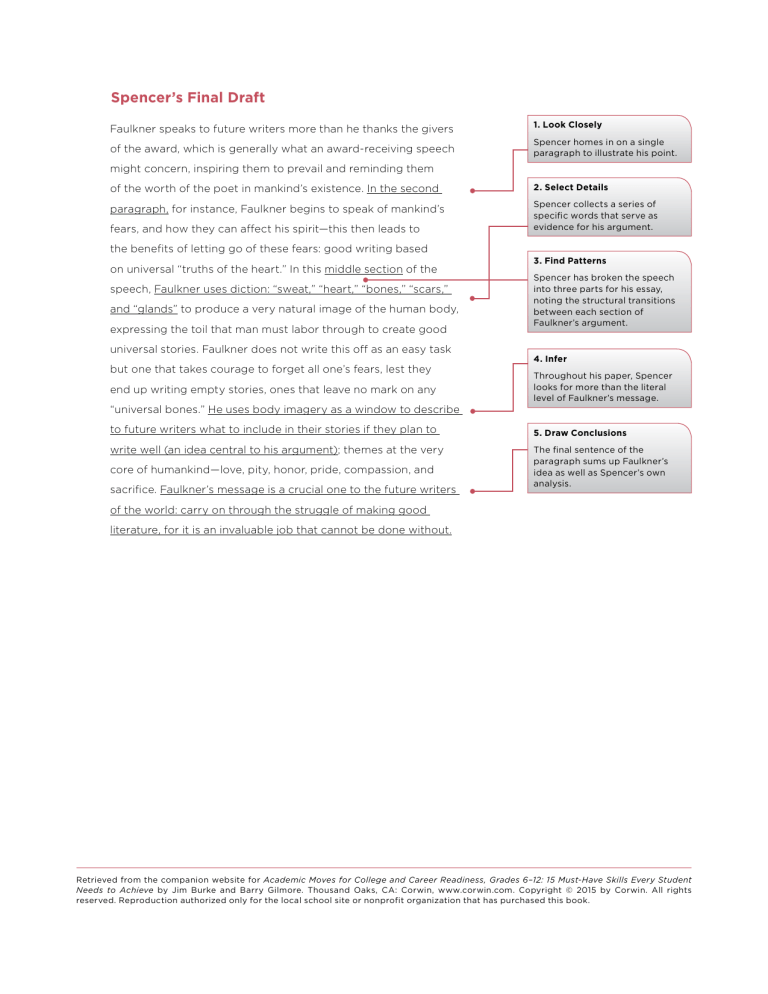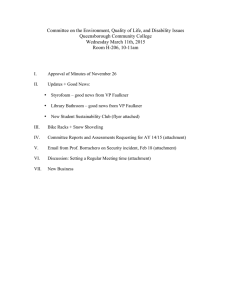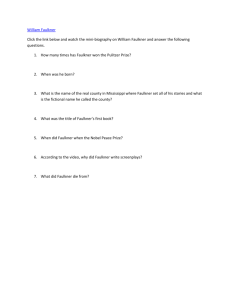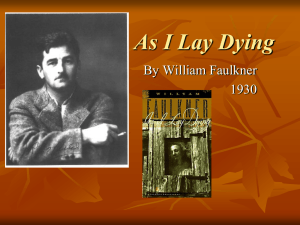
Spencer’s Final Draft Faulkner speaks to future writers more than he thanks the givers 1. Look Closely of the award, which is generally what an award-receiving speech Spencer homes in on a single paragraph to illustrate his point. might concern, inspiring them to prevail and reminding them of the worth of the poet in mankind’s existence. In the second 2. Select Details paragraph, for instance, Faulkner begins to speak of mankind’s Spencer collects a series of specific words that serve as evidence for his argument. fears, and how they can affect his spirit—this then leads to the benefits of letting go of these fears: good writing based on universal “truths of the heart.” In this middle section of the speech, Faulkner uses diction: “sweat,” “heart,” “bones,” “scars,” and “glands” to produce a very natural image of the human body, expressing the toil that man must labor through to create good universal stories. Faulkner does not write this off as an easy task but one that takes courage to forget all one’s fears, lest they end up writing empty stories, ones that leave no mark on any “universal bones.” He uses body imagery as a window to describe to future writers what to include in their stories if they plan to write well (an idea central to his argument); themes at the very core of humankind—love, pity, honor, pride, compassion, and sacrifice. Faulkner’s message is a crucial one to the future writers 3. Find Patterns Spencer has broken the speech into three parts for his essay, noting the structural transitions between each section of Faulkner’s argument. 4. Infer Throughout his paper, Spencer looks for more than the literal level of Faulkner’s message. 5. Draw Conclusions The final sentence of the paragraph sums up Faulkner’s idea as well as Spencer’s own analysis. of the world: carry on through the struggle of making good literature, for it is an invaluable job that cannot be done without. Retrieved from the companion website for Academic Moves for College and Career Readiness, Grades 6–12: 15 Must-Have Skills Every Student Needs to Achieve by Jim Burke and Barry Gilmore. Thousand Oaks, CA: Corwin, www.corwin.com. Copyright © 2015 by Corwin. All rights reserved. Reproduction authorized only for the local school site or nonprofit organization that has purchased this book.




